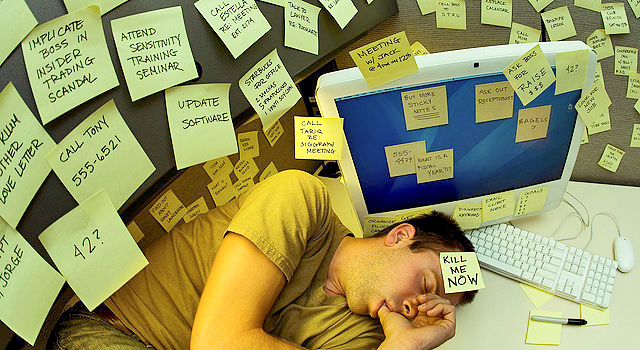How to Go Into Creative Mode in 7 Days to Die

Along with many thousands of others, I attended SXSW this month. And while there, I learned some important lessons (other than "exercise patience while waiting in line, AGAIN," and "don't eat barbecue every meal for 5 days."). These lessons came from the panels I attended, but they were not from anything said within the panels. Rather, they had to do with what I discovered about the types of content I should be seeking.
Initially, I tried to attend talks or panels directly related to my industry and clients, but each time the information felt like things I already knew, and instead of feeling inspired, I just felt tired.
But as soon as I stepped outside my little world, everything changed. From Ray Kurzweil's mind-blowing keynote about how we're all becoming robots (at least that was more or less the gist), to getting to meet an actual robot, Bina 48, to hearing author Michelle Haimoff discuss her new novel as part of Google Play's Author Series at the Android House, the best things I saw were not about branding, or web design, or startups.
By seeking information and experiences that had nothing to do with my day-to-day, the conference became far more worthwhile. I was stretching my brain in new ways. I felt intellectually stimulated and energized. And guess what? It ended up inspiring me to think about my own work differently. It was a total turnaround from my first couple of days at the conference, and it got me thinking about other ways that we can step outside our comfort zones to stimulate fresh thinking.
1. Leave the office.
I know a lot of creative people are aware of this idea in theory, but I'm not sure how many put it into practice. Every time I am having trouble writing a strategy for a client, or coming up with a new name or headline, the answer never comes sitting at my desk. At my computer, when I'm stuck, my mind and mouse start wandering to Facebook, and then email, and then back to Facebook. I've checked Facebook four times writing this article!
But if I get up to take a walk or get a coffee, the pressure is off and my mind becomes free to focus (it sounds counterintuitive, but it works). I have a client who used to jokingly send me into the hall if we were trying to solve something. The same is of course true for travel and time off, but even on a very small scale, leaving your personal space for just a few minutes can make a huge difference in generating new ideas. So don't underestimate the power of a change in scenery.
2. Don't specialize.
At my branding and design consultancy, we often have clients ask to see what else we've done in their category. And we have to explain to them that we've purposely stayed broad in terms of the types of clients we work with, to avoid the pitfalls that come from doing the same thing over and over again. Within every category, there's so much imitation and repetition: It's why every fashion site ends up looking like every other fashion site, and every bakery ends up with the same cutesy logo. But by broadening our portfolio, we don't rip ourselves off. It's how we're able to bring fresh thinking and produce ideas that are truly differentiated. The answer is not to be a dilettante, but I do think it's worthwhile (and more fun) to spread your work and talent across different scopes and processes.
3. Stop reading business books.
Okay, there are some business books that are really great, and I'm not saying NEVER to read them. But if that's all you're reading, I will kindly suggest that you're wasting your time. In general, you learn so much more about business from doing than from reading about it. Fiction, on the other hand (or interesting nonfiction that's not about your industry), exposes you to new worlds and new perspectives. It reveals things about yourself and doesn't just give you new information that's in one ear and out the other–it actually gets you to think differently, which applies to everything you do. That's why I'm always more excited about potential job candidates with degrees in things like French literature or neuroscience than marketing and communications.
We all work so hard, and it's very easy to live exclusively inside that bubble–attending events, reading, even socializing solely within our own professional circles. But there's tremendous power in cross-pollination, and in experience for experience's sake. When you set out to do things that have no direct implications for your job, i.e. as soon you stop trying, that's when true inspiration comes.
How to Go Into Creative Mode in 7 Days to Die
Source: https://www.fastcompany.com/1826268/desks-where-creativity-goes-die